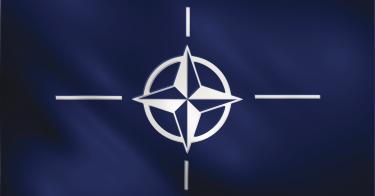Many of America’s allies in NATO have slashed their military budgets since the end of the Cold War. Those “peace dividends” have taken a severe toll the free world’s military power.
When troops were needed in places like Afghanistan or Iraq, some European& countries were able or willing to deploy only a few dozens at a time. During the Libya campaign, some European countries were literally running out of bombs to drop.
If a more urgent wake-up call was needed, Russia’s invasion of Ukraine in 2014, should have done the job. And, indeed, the situation has improved slightly since that act of naked aggression. But most European nations still have a long way to go before their military spending rises to the levels truly required to meet the threats facing the West.
Since entering the Oval Office, President Trump has brought much needed attention to our allies’ need to pull their weight on the common defense by beefing up their militaries. And some American policymakers are looking to the EU as way forward. After all, 22 EU members are also part of the NATO pact. Their notion is that the organization could stand up an “EU army” that could become the “European Pillar” inside NATO.
This might sound good — but it isn’t going to work.
The belief that a stronger EU role in defense matters will encourage European countries to invest more in defense rests on the dubious premise that the EU will somehow be able to achieve what NATO has been unable to do since the end of the Cold War.
Moreover, the creation of an EU army is also risky policy for the United States and could have negative long-term consequences for NATO.
Proponents argue that an EU army will always be made available to the alliance. While theoretically appealing, this is unlikely to work in practice.
Almost all decisions pertaining to defense and security matters in the EU are taken by unanimity — meaning that just one country can veto everything. And six veto-wielding EU members are not members of NATO. One of them, Cyprus, has a record of blocking and delaying NATO-EU cooperation, having done so during major operations in the Balkans and Afghanistan.
This is also why it would not be in the interest of the United States to have the bulk of Europe’s fighting force under the control of the EU.
The United States had enough problems getting several members of NATO to send meaningful numbers of troops to Afghanistan. So imagine the difficulty the U.S. would have if almost all of the individual armies across Europe merged under one flag and that the decision for use this new amalgamated European army required unanimity. The United States would have to settle for all or nothing — and considering the recent anti-American sentiment found in many corners of Europe, it would probably be nothing.
Also, the goal of creating an EU army is not actually about creating more military capability in Europe. Eurofederalists have embraced the idea as opening yet another policy area in which Brussels may plant the EU flag. Defense is one of the few areas that largely remains the competency of the individual member states. For them, an EU army is about European integration, not military capacity and capability.
So what should the United States do about the idea of an EU army? The EU is not the answer to Europe’s military woes. Instead, the U.S. should push for more NATO-centric solutions that will ensure that all advancements in European defense capabilities are done through the NATO alliance or at least on a multilateral basis. Every euro spent on EU defense initiatives is one less that is available for NATO.
European capitals should focus their energy and resources on fixing NATO rather than creating more institutions and signing up for further military commitments within the EU. This is the only way the United States will see greater burden sharing.
The U.S. must ensure that NATO retains its primacy over, and the right of first refusal for, all Europe-related defense matters. This will guarantee that the U.S. retains the level of influence commensurate with the level of resources it commits to Europe.
Any increase in European military capability needs to take place under the NATO umbrella. NATO has been the cornerstone of trans-Atlantic security for almost seven decades. Now is not the time to replace it with new security structures that will compete with, not complement, the alliance.
This piece originally appeared in Inside Sources



